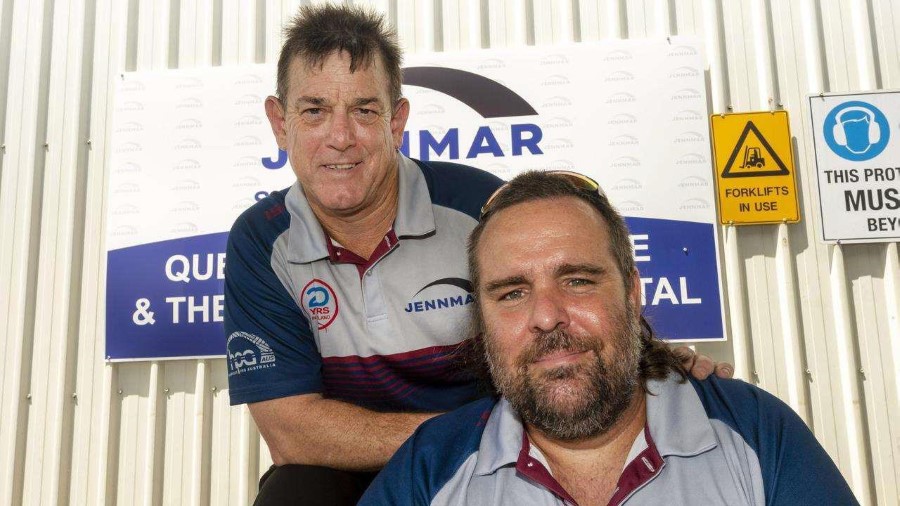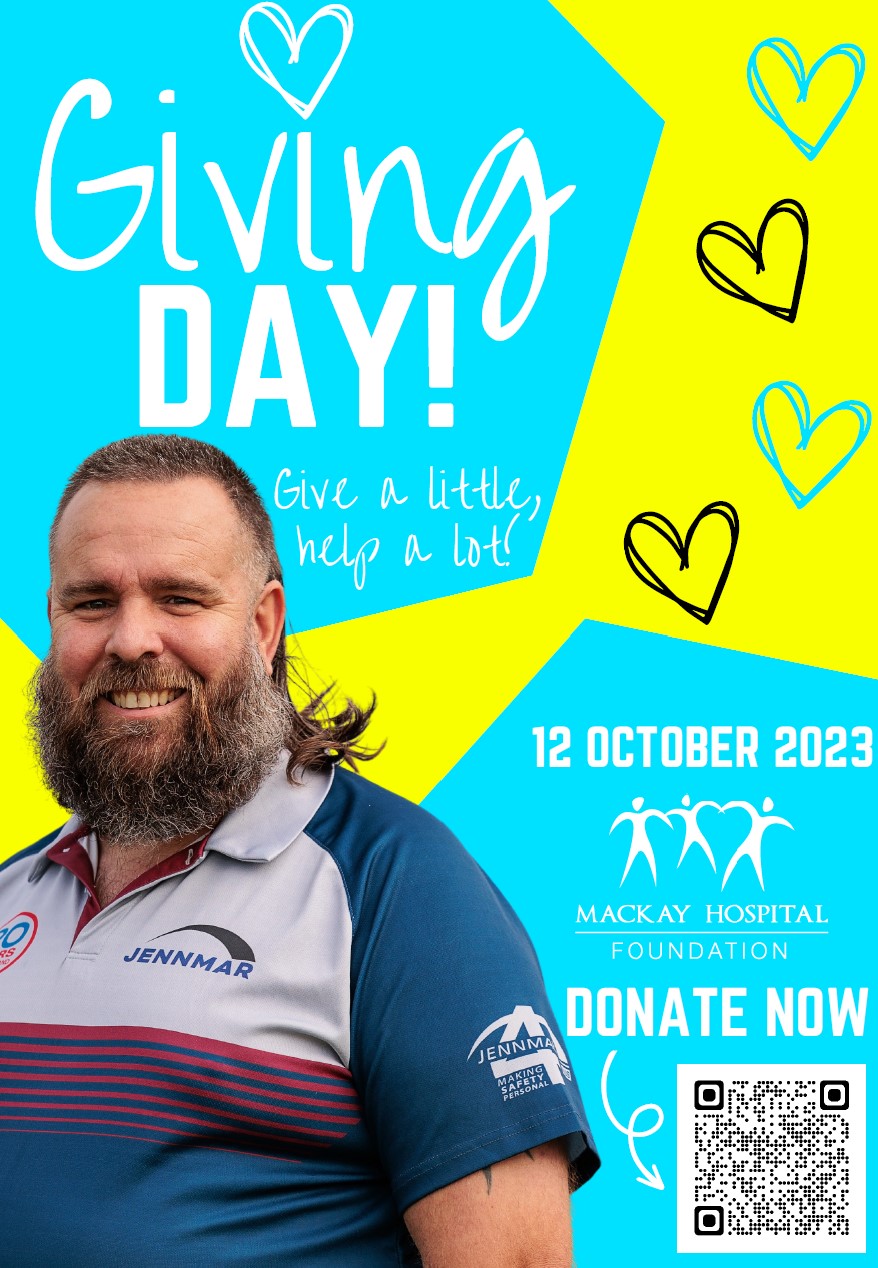
Going to work one sunny afternoon back in February literally saved Dylan Holmes’ life.
For, on that unsuspecting day, not long after he clocked on for a production shift at the Mackay plant of manufacturer JENNMAR Australia, the 44-year-old collapsed mid-conversation without any warning, whatsoever.
He was unresponsive.
First aid assistance was summoned, CPR performed and within 90 seconds, an AED (Automated External Defibrillator) was at the scene.
“This undoubtedly saved his life,” JENNMAR Australia Queensland Manager Mick Baker, among the first responders, said.
“We administered five shocks prior to the ambulance arriving then paramedics administered a further four.
“Dylan had his heartbeat back by the time he was taken to Mackay Base Hospital."
The father of one was in a coma for 28 hours and hospitalised for a week. With no apparent cause for his collapse, he had an internal defibrillator implanted in his chest.
Mr Holmes, pictured with Mr Baker, has since made a full recovery — but his story doesn’t end there.
Rather, his brush with death has inspired Mr Baker, with full support from JENNMAR, to raise awareness of the importance of having an AED in the workplace.
“The paramedics and hospital have all said if we did not have that AED on site, Dylan would not be here today,” Mr Baker said.
“There’s no way he could have survived without the AED.”

Dylan has been chosen as this year’s ambassador for Mackay Hospital Foundation’s annual Giving Day fundraiser on October 12 to benefit the Mackay, Whitsunday and Moranbah hospitals. JENNMAR Australia will double the amounts from donors who mention JENNMAR.
Donate here
Conversations already sparked by JENNMAR demonstrate greater awareness — and action — is sorely needed, Mr Baker said.
“One manager of another big business said their workplace had a defib, but he wasn’t sure where it was,” he added.
“After hearing Dylan’s story, he went back to his workplace, stopped his entire workforce and did defib training right there and then.
“That manager happened to be the same age as Dylan, so he took it very seriously.
“It wasn't like Dylan was sick or had any underlying condition.
“It could happen to anybody.”
There was certainly no indication that Mr Holmes’ day would unfold as it did.
He had been feeling so well that he clocked on early to accumulate overtime.
“I don't remember any of the day but if I had been feeling unwell, I wouldn't have come in and done overtime,” Mr Holmes said.
“It was a hot day, and it’s physical work. The fact my partner said I was sending her TikToks during the day means everything was sweet.
“When she left for work in the morning, I was at the front waving goodbye.
“So, yeah, I didn't feel unwell; it was just one of those things.
“The guy I was working with said I had been talking normally one minute and the next thing he knew, I let out a moan and he saw me crunched over some plates (mining equipment) before falling to the ground.
“If I had been feeling unwell and decided to have the day off, it would have been a completely different outcome because I would have been at home by myself.
“I'm just lucky it happened at the right time in the right place.
“It sounds strange to say, but it couldn’t have been any more perfect than what it was.”
JENNMAR, which manufactures bolt, plate, anchorage and surface support for mining, also wants to highlight the ease of using an AED.
“On the day when it was hitting the fan, that defib just walked us through it,” Mr Baker said.
“We were just first aiders in the workplace following the instructions that those defibs give. It was so simple.
“After the whole event was finished and we did a debrief, we all looked at each other and said: ‘I can't believe we've just done that’.
“Those machines are lifesavers and for the amount of money they cost, it's the best investment your business will ever make.
“If we can get one business to buy an AED out of this story, then that's a success because that one machine could save a life at somebody else's business.”
The Model WHS Code of Practice for First Aid in the Workplace states: “Providing an AED can reduce the risk of fatality from cardiac arrest. While cardiopulmonary resuscitation (CPR) can prolong life, defibrillation is the only way to restore a heart with a fatal heart rhythm back to a normal heart rhythm.
“You should consider providing an AED if there is a risk to workers at your workplace from electrocution, if there would be a delay in ambulance services arriving at the workplace, or where there are large numbers of members of the public.”
JENNMAR Australia has been a member of Ai Group since 1998.
“As a medium-sized business, we don’t have vast resources to stay abreast of the rapidly changing policies and work environments in our industry.
However, The Australian Industry Group’s support, advice and insights have helped us to stay up to date with all these changes and improve our HR, governance and legal capabilities.
We would recommend Ai Group to other businesses, small and large, for support in challenging and dynamic industries.” — Gareth King, Managing Director, JENNMAR Australia

Wendy Larter is Communications Manager at the Australian Industry Group. She has more than 20 years’ experience as a reporter, features writer, contributor and sub-editor for newspapers and magazines including The Courier-Mail in Brisbane and Metro, the News of the World, The Times and Elle in the UK.